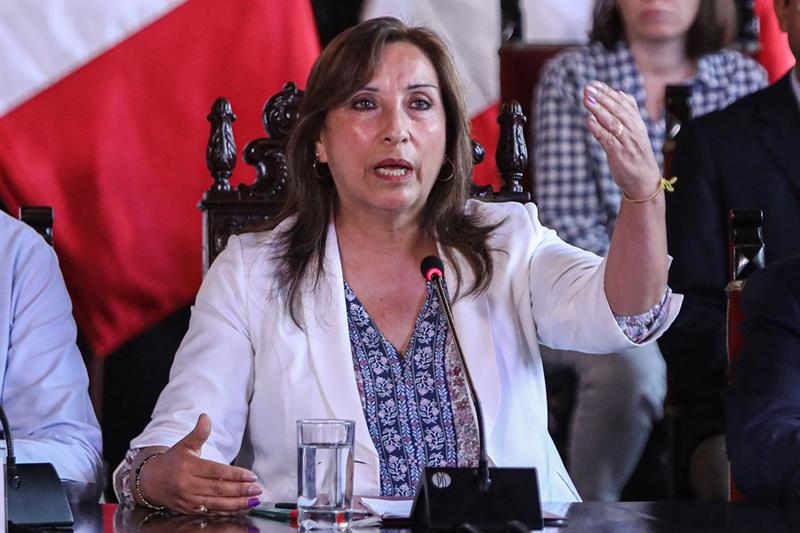
Peruvian President Dina Boluarte speaks during a conference at the Government Palace in Lima, on December 17, 2022. AFP
In an early Saturday press conference, a defiant Boluarte pushed back against calls from some demonstrators that she resign, arguing that such a move wouldn't resolve the urgent problems facing Peru's countryside, such as the worst drought in a half-century, and only plunge the country deeper into chaos.
Instead, she slammed Congress, which on Friday failed to muster enough votes to approve her proposal for a constitutional amendment that would've push up elections, originally scheduled for 2026, to December 2023. She called on lawmakers to reconsider their position, citing opinion polls that more than 80% of Peruvians want general elections _ for both president and Congress _ to stabilize the country.
``Don't be blind,'' Boluarte said in some of her strongest rhetoric since taking over from Castillo 10 days ago. ``Look at the people and take action in line with what they are asking.''
At least 20 people have died, and more than 500 demonstrators and security forces have been injured, in protests that have spread across Peru after Castillo was removed from power by lawmakers last week. The crisis has only deepened the instability gripping the country, which has seen six presidents in as many years.
Boluarte, who was the running mate of the outsider Castillo in his shock victory last year, said she tried as hard as she could to ``protect'' Castillo from a hostile Congress made up of elites who made it impossible for the newcomer politician to govern from the moment he left behind his two-story adobe home in the Andean highlands to the neo-baroque presidential palace in Lima.
She compared the highway blockades, acts of arson and violent protests engulfing parts of Peru's long-neglected countryside to the invisible, emotional damage suffered by children growing in a broken home with constantly feuding parents.
``Didn't you see me walking across the country, filling plazas and looking for votes among brothers and sisters?'' she said, at one point breaking into Quechua _ the language of indigenous Peruvians, which she speaks fluently _ to appeal for calm. ``Then why this violence in the streets? I didn't look to be here. I tried to protect him as much as I could.''
Short link: